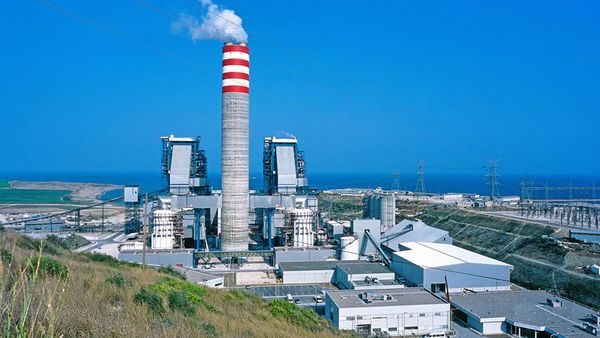A wave of foreign corporate departures from Turkey continues to raise concerns over the country’s economic stability, investor confidence, and political climate. The latest development in this trend is the planned sale of German energy company Steag’s 51% stake in İskenderun Energy, marking another major Western business exit from the country. Meanwhile, the brief detention of top executives from TÜSİAD, Turkey’s most influential business association, has further intensified fears over the country’s business environment.
Steag’s Exit Reflects Investor Anxiety
Germany-based Steag, which invested $1.5 billion in the Sugözü Thermal Power Plant, is seeking to sell its stake for around $600 million, signaling its broader plan to phase out coal operations globally. However, analysts say the decision also reflects growing concerns among foreign businesses regarding Turkey’s economic policies, rising energy costs, and political uncertainty.
The sale follows a broader exodus of German firms from Turkey. Among recent corporate exits:
- – Ytong, a construction materials manufacturer, sold its stake in Türk Ytong to local firm Nakkaş Holding in November.
- – Linde + Wiemann, a major German automotive supplier, ended its partnership in Linde Opsan Otomotiv in December.
- – Farhym, a subsidiary of Germany’s Hymer Group, transferred its stake to Turna Ahşap in January.
- – Siemens Gamesa, one of the world’s top wind turbine producers, announced plans to shut down its R&D center in İzmir, resulting in the layoff of 80 engineers.
TÜSİAD Executives Detained Over Criticism
Adding to investor concerns, the government’s crackdown on dissidents took a dramatic turn this week when TÜSİAD Chairman Orhan Turan and High Advisory Council Chairman Ömer Aras were detained after voicing concerns over economic mismanagement and judicial independence. The arrests, which followed harsh criticism from President Recep Tayyip Erdoğan, were widely condemned by opposition parties and business leaders.
During TÜSİAD’s General Assembly on February 13, Aras warned that judicial interference, media crackdowns, and economic instability were damaging investor confidence. His remarks, along with those of Turan, led to swift legal action. Prosecutors accused them of “attempting to influence the judiciary” and “publicly spreading false information.”
Both executives were later released under judicial supervision, but they remain subject to a travel ban—a move that business leaders fear could set a dangerous precedent for private sector independence in Turkey.
Opposition and Industry Response
The incident triggered immediate backlash from opposition politicians and industry representatives. Republican People’s Party (CHP) Chairman Özgür Özel mocked the government’s foreign investment efforts, suggesting that Finance Minister Mehmet Şimşek—who has been courting global investors—should now use the image of business leaders being escorted by police in his pitch presentations.
“He might as well reduce his presentation to a single slide,” Özel said. “He can show the photo of the TÜSİAD chairman being held by two police officers and say, ‘This is how favorable the investment environment in Turkey is.’”
Other political figures, such as Future Party leader Ahmet Davutoğlu, condemned the detentions as “irrational” and part of a broader pattern of intimidation against dissenting voices in business and politics.
Investor Confidence at Risk
Turkey has been struggling to attract foreign capital amid soaring inflation, currency depreciation, and rising production costs. Despite efforts by Finance Minister Mehmet Şimşek to restore credibility with international investors, incidents like the TÜSİAD detentions and corporate departures have sent the opposite message.
Turkey surpassed Germany in 2024 as Europe’s largest coal-powered electricity generator, signaling a continued reliance on fossil fuels while much of Europe moves toward cleaner energy. This divergence has also affected foreign investment patterns, particularly from Western companies prioritizing ESG (Environmental, Social, and Governance) compliance.
The departure of German firms and the repression of business leaders could further erode trust in Turkey’s investment climate, experts warn. “Foreign investors seek stability, legal security, and market predictability. Arbitrary detentions of business executives and political interference in economic matters deter long-term investment commitments,” said a senior economist at a European financial consultancy.
What’s Next?
The coming months will be crucial for Turkey’s economic direction. While the government aims to attract investment to stabilize the economy, its growing hostility toward independent business voices could drive away potential investors. With major European companies scaling down or exiting, and local businesses facing pressure, Turkey may need to reassess its approach to economic governance to prevent further capital flight.
For now, the combination of corporate departures and the government’s tightening grip on business leaders is deepening economic uncertainty, making Turkey a less predictable environment for investors—both foreign and domestic



